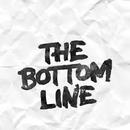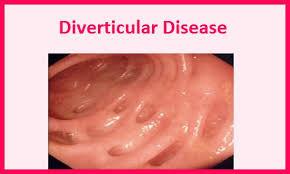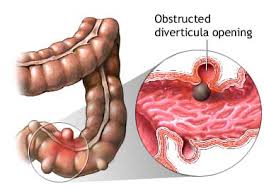Diverticulosis or Diverticular disease
|
Diverticulosis is a very common disease that effects up to 50% of people over the age of 60.
Recent data shows that diverticulosis has increased in younger people with diverticula being seen in up to 25 % by the age of 40. Fortunately, diverticulosis does NOT cause cancer How do we prevent diverticulosis from developing?
It is known that countries with high fibre intake have very low rates of diverticular disease. This means that a high fibre diet will help decrease the risk of diverticulosis but it needs to be started early. A diet high in fiber contains 25-35 grams of fibre daily. This does mean you need to eat fruits, vegetables and grains every day. In the past, it was recommended to avoid nuts, seeds and popcorn. This was shown not to be true and in fact eating these foods may be beneficial. |
What are the complications of diverticulosis?
The two major complications caused by diverticulosis is diverticular bleeding and diverticulitis.
About 25% of patients with diverticulosis will experience one of these complications during their lifetime.
A high fibre diet may help in decreasing the risk of developing these complications. Unfortunately, there is no other treatment that has been shown to be effective.
More commonly, people will develop diverticular pain with abdominal cramps, bloating and constipation. Sometimes the pain can be quite intense and can mimic a diverticulitis.. If you have localized tenderness, fever or nausea, you probably have a diverticulitis and need to be treated with antibiotics.
The two major complications caused by diverticulosis is diverticular bleeding and diverticulitis.
About 25% of patients with diverticulosis will experience one of these complications during their lifetime.
A high fibre diet may help in decreasing the risk of developing these complications. Unfortunately, there is no other treatment that has been shown to be effective.
More commonly, people will develop diverticular pain with abdominal cramps, bloating and constipation. Sometimes the pain can be quite intense and can mimic a diverticulitis.. If you have localized tenderness, fever or nausea, you probably have a diverticulitis and need to be treated with antibiotics.

1. Diverticular disease does not cause cancer
2. High fibre foods, seeds and nuts can reduce the risk
For more information on diverticulosis, diverticular bleeding and diverticulitis, click here
|
www.ourdigestivehealth.com
www.GadFriedman.com |


